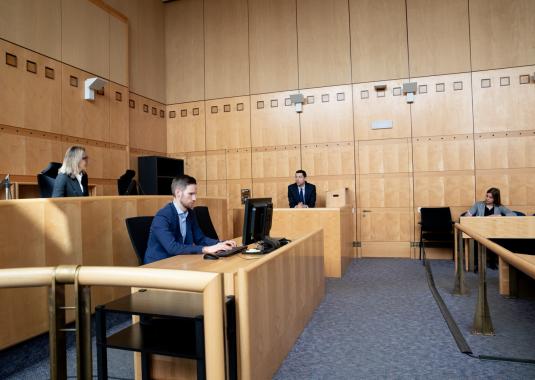Contacts
Address
Contact details
Mailing address
Chambre de surveillance
Case postale 3108
1211 Genève 3
Competences
The Chambre de surveillance is composed of 2 chambers:
The Chambre de surveillance (CS-TPAE):
- Exercises a supervisory function and rules on appeals against decisions of the Tribunal de protection de l'adulte et de l'enfant (parental responsibility, custody, deputyship, inventory in the succession) and of the land and commercial registers.
- Rules on appeals against decisions of the service état civil et légalisations in matters of adoption.
The Chambre de surveillance (CSO):
- Receives complaints and exercises general and disciplinary supervision over the Debt enforcement and Bankruptcy Offices (inspections, accounting examination).
Organization
The Chambre de surveillance’s Office is the sole interlocutor for litigants. It coordinates the administrative follow-up of the files and deals, under the responsibility of the judges, with questions related to the proceedings and steps to be taken. It can be reached by telephone at the times mentioned. It does not answer legal questions.
The Chambre de surveillance (CS-TPAE) is composed of 3 career judges when it rules.
To adjudicate the complaints, the CSO is composed of a judge who presides over it and 2 assessors. CSO judges are assisted in their tasks by the court's legal staff.
Proceeding
You must submit your appeal/objection to the Chambre de surveillance within the time limit provided for by law, in written form, in one copy per party, by post or by depositing it directly at the desk of the Chamber or at the Greffe universel. It must be written in French and signed.
Your appeal/objection must imperatively:
- Name the parties and their possible lawyers, indicating the contact details of each
- Name the decision being appealed, a copy of which must be attached
- Specify in a concrete way the factual and legal reasons for which you are challenging the contested decision (motivation)
- Indicate what you wish to obtain (conclusions)
- Enclose all useful documents
Application forms
Questions/answers
In civil matters, the parties can generally be represented by their lawyer. However, they are required to appear personally in 2 cases: when the court has expressly ordered it and at conciliation hearings.
At conciliation hearings, however, the parties may be represented when they are domiciled outside the canton or when they are prevented from appearing due to illness, age or other good reasons.
Please note: the presence of minor children who have not been summoned (even babies) is only allowed in court with the agreement of the judge.
In civil matters, yes, because the minor child must be represented by his/her legal representative. Exceptionally, the child can act without the assistance of his/her legal representative if he/she is exercising a strictly personal right.
- In civil proceedings, hearings are public with 3 exceptions: hearings pertaining to family law are not public; the court may order that hearings be held in a closed session when a private or public interest requires it; hearings in conciliation proceedings are never public.
- In criminal proceedings, the hearings of the Chambre pénale d'appel et de révision are in principle public while those of the Chambre pénale de recours are not.
Yes, in the following cases:
- At the stage of conciliation
- At any stage of the proceedings, if the hearing is public
Useful links
- Code civil suisse (RS - 210)
- Code des obligations (CO - RS 220)
- Ordonnance sur le registre du commerce (ORC - RS 221.411)
- Ordonnance sur le registre foncier (ORF - RS 211.432.1)
- Loi d'application du code civil suisse et d'autres lois fédérales en matière civile (LaCC - E 1 05)
- Loi sur l’organisation judiciaire (LOJ - E 2 05)
- Loi fédérale sur la poursuite pour dettes et la faillite (LP - RS 281.1)
- Loi d’application de la loi fédérale sur la poursuite pour dettes et la faillite (LaLP - E 3 60)
- Loi sur la procédure administrative (LPA - E 5 10)
- Loi sur l’organisation judiciaire (LOJ - E 2 05)
- Ordonnance du Tribunal fédéral sur la réalisation forcée des immeubles (ORFI - RS 281.42)
- Jurisprudence de la chambre de surveillance (poursuites et faillites)
- Jurisprudence de la chambre de surveillance (registres de commerce et foncier, Tribunal de protection de l'adulte et de l'enfant)






